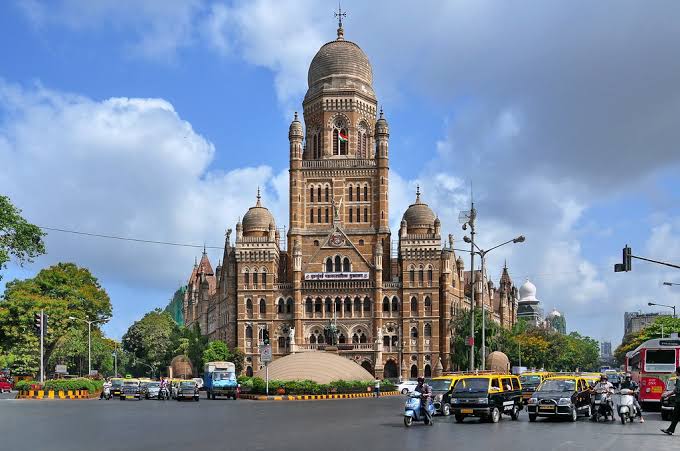Mumbai Municipal Corporation Appeals To Take Extreme Care Regarding Mosquito Prevention As Dengue And Malaria Cases Increase

Mumbai, 25th August 2022: 509 cases of winter fever (malaria) were detected within the Brihanmumbai Municipal Corporation area between 1st August and 21st August 2022. During the same period, 105 dengue patients were also identified. Both the diseases are spread by mosquitoes. Winter fever is spread by ‘Anopheles’ mosquitoes and dengue is spread by ‘Aedes’ mosquitoes.
The birth of these mosquitoes can even occur due to a few drops of stagnant water accumulated in various objects like bottle caps, tires, thermocols, coconut shells, air conditioning systems, refrigerator defrost trays, empty straws, trays under plant pots, and others, leading to the spread of deadly diseases like dengue and malaria. It is important to disperse the accumulated water, said Dr Sanjeev Kumar, Additional Municipal Commissioner (Western Suburbs) of Brihanmumbai Municipal Corporation.
The Brihanmumbai Municipal Corporation Pesticides Department Officer, Mr Rajan Naringrekar, said, “If mosquito breeding sites are found in public places within Brihanmumbai Municipal Corporation, action is taken continuously by Public Health Department and Pest Control Department of Brihanmumbai Municipal Corporation to destroy them. However, in accordance with this, all the citizens must ensure that there are no places that can accumulate stagnant water in their houses and society premises. Accordingly, it is necessary to regularly inspect your home and the surrounding area. Also, during this inspection, items like bottle caps, tires, thermocol, coconut shells, air conditioning system, refrigerator defrosts tray, empty pots, trays under plant pots, and the accumulated water in them, should be dispersed so that it does not breed mosquitoes.”
Which mosquitos transmit the dengue virus and the malaria parasite?
The aedes aegypti mosquito, which spreads the dengue virus, originates in stagnant or stored clean water. The anopheles stephensi mosquitoes, that spread malaria parasites (Plasmodium species), also originate in clean water. During the survey conducted by the Municipal Corporation, even a spoonful of water accumulated in the house and the surrounding areas can turn into a breeding ground for mosquitoes that spread dengue and malaria. Keeping this in mind, it is very important for citizens to carefully identify places where water can accumulate in their homes and offices and disperse it immediately.
Why disperse stagnant water?
A female mosquito lays about 100 to 150 eggs in stagnant water. It usually takes a week for a mosquito to hatch from these eggs. Keeping this in mind, it is very important to restore water storage vessels, tanks etc., at least once every week in your house, society and office premises. Under this, regularly check the premises of your society, closed houses, lift ducts, roofs of buildings etc., once a week to ensure that there is no stagnant water for long periods.
Observe a day in a week as ‘dry day’ to check for stagnant water on your premises
Citizens should also cooperate with the Municipal Corporation by removing various types of useless items that carry stagnant water. Also, pumps or drums are kept outside many houses to store water. Larvae of dengue-carrying mosquitoes have been found in large quantities in this water regularly. One day in a week should be observed as ‘dry day’ to clean and restore the water pumps and other water storage vessels. They should be washed thoroughly to remove the mosquito eggs stuck on the surface.
Some facts about mosquitoes and their spreading of diseases
• The life span of mosquitoes is generally three to six weeks. A female mosquito usually lays eggs three times in her life. Usually, 80 to 100 eggs are laid each time. These eggs can survive for up to a year, even in dry conditions. Then when it comes in contact with water, these eggs can be fertilized.
• The female mosquito that spreads malaria and dengue lays its eggs only in clean and stagnant water. A spoonful of water is enough to add these eggs. Mosquitoes usually hatch within a week of egg laying.
• Pollen of flowers, fruits or other sugary foods are considered the main food of male mosquitoes. Blood is the food of female mosquitoes, and the protein in it is required for the formation of eggs. The female mosquito bites humans for these proteins.
• Parasites/viruses of diseases like malaria and dengue can be present in the body of mosquitoes. When a female mosquito carrying parasites/viruses bites a human, the diseases are transmitted to humans. The female mosquito that transmits dengue usually bites humans during the day, while the female mosquito that transmits malaria usually bites between midnight and dawn.
• Use of mosquito nets, ointments, and clothes that cover the body should be adopted to avoid mosquito bites. The instructions given by the Public Health Department and Pest Control Department of the Municipal Corporation should be followed strictly.





